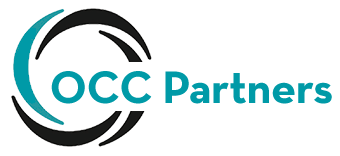Beginner’s Guide to Networking for Healthcare Professionals

Building connections and networking, is critical for everyone today, and can be very useful for healthcare professionals. Whether you’re a Physical Therapist, Registered Nurse, LPN, Dental Professional, Physician, or in another specialty area, it’s an advantage for your career.
Our world is getting smaller, as Stacey says in her blog on One Hour Translation, ‘we often find ourselves connecting with people from one job to another, or with people who leave and move to another position, you’re likely to find it useful at points throughout your career.’
Several years ago, I was encouraged to begin networking and sought out resources to figure out how, including Keith Ferrazzi, and his book, Never Eat Alone, to better understand the mechanics of how to do it. And while that helped me launch my networking efforts, I quickly realized that sometimes it can be easy, but other times it’s a challenge. Here’s suggestions and ideas for it all.
First, if you’re not on LinkedIn already, set up a LinkedIn profile. Keep it simple, but professional. This is a professional networking site, so never put anything too personal or social on it. If you’re concerned about privacy, you can adjust the settings to better match your comfort level. Then, once you’ve got your own profile, invite a peer to connect with you, and another and another. It’s also a great idea to connect with people you’ve met at school, or at any organizations you belong to. And, try to build 75 connections or more to start. This is an arbitrary number, and a guide to help make it a useful tool. You may not need the connections today, but at some point, you’re likely to consider them valuable.
Let’s talk about why you’re networking. There can be several reasons; you’re looking for a new position, you want to stay connected with talented individuals you’ve met, you want to connect with potential employers, or you know it’s just something you should do. For healthcare professionals, these reasons can also include:
- Building connections with other therapists, doctors, and other healthcare professionals, which may develop into partnerships or help you to land future patients.
- Knowledge and advice of other therapy professionals about different or innovative treatments and techniques.
- Awareness of recent research, upcoming events, and issues your profession is currently facing.
- More professional options. When meeting other professionals in your expertise, you may learn about another position you’d be interested in.
 Whatever your reason for networking, for it to be useful and be good at it, you need a focus. Several years ago, I learned the hard way what my motivation would be. My family and I were on a trip driving through to another state when we were stopped by the highway patrol on our route. After reviewing our license and talking with us, the officer said, ‘Recently I received some valuable assistance from someone I didn’t expect, and they wouldn’t let me compensate them, they said, ‘pay it forward.’ So, I’m going to pay it forward, and if you agree to do that also, you can go on with your trip and I won’t give you a violation.’ That was the beginning of a commitment to pay it forward. Yes, it’s a simple life story, but it was a poignant lesson I learned and how it impacted my networking was important. After some thought, I decided to make ‘pay it forward’ my motivation for networking. So, as I began reaching out to connect with others, I looked at ways I might be able to help them. Often there aren’t any specific ideas that emerge, and they may end up helping you instead, but knowing my motivation made it substantially easier and more fun to network. And the rewards have been immense – from those that I helped professionally and personally, to those that have helped me in unexpected ways.
Whatever your reason for networking, for it to be useful and be good at it, you need a focus. Several years ago, I learned the hard way what my motivation would be. My family and I were on a trip driving through to another state when we were stopped by the highway patrol on our route. After reviewing our license and talking with us, the officer said, ‘Recently I received some valuable assistance from someone I didn’t expect, and they wouldn’t let me compensate them, they said, ‘pay it forward.’ So, I’m going to pay it forward, and if you agree to do that also, you can go on with your trip and I won’t give you a violation.’ That was the beginning of a commitment to pay it forward. Yes, it’s a simple life story, but it was a poignant lesson I learned and how it impacted my networking was important. After some thought, I decided to make ‘pay it forward’ my motivation for networking. So, as I began reaching out to connect with others, I looked at ways I might be able to help them. Often there aren’t any specific ideas that emerge, and they may end up helping you instead, but knowing my motivation made it substantially easier and more fun to network. And the rewards have been immense – from those that I helped professionally and personally, to those that have helped me in unexpected ways.
So, why do you network? Think about it and decide why you want to build your professional network, choose your motivation and focus.
Next, join a local professional organization. If you can’t find one you’re interested in, try finding an organization to volunteer at, and become involved with volunteering. Volunteering can be a great resource for connecting with like-minded professionals.
 Start meeting people face to face, whether it’s at conferences, continuing education, or social. It will all be beneficial, and you don’t need to connect with everyone, but if you can connect with one or several people you respect, connect with them later via LinkedIn, and keep an eye on their progress and stay in touch with everyone in the network you’re building.
Start meeting people face to face, whether it’s at conferences, continuing education, or social. It will all be beneficial, and you don’t need to connect with everyone, but if you can connect with one or several people you respect, connect with them later via LinkedIn, and keep an eye on their progress and stay in touch with everyone in the network you’re building.
Last, as you approach networking, keep your approach positive and professional. Don’t approach networking from the point-of-view, what can I gain from this connection? Instead, your approach should be on connecting with talented and interesting people.
Throughout the years, networking has proved to be rewarding in every aspect, professionally of course, and several times over, but also socially and personally.

